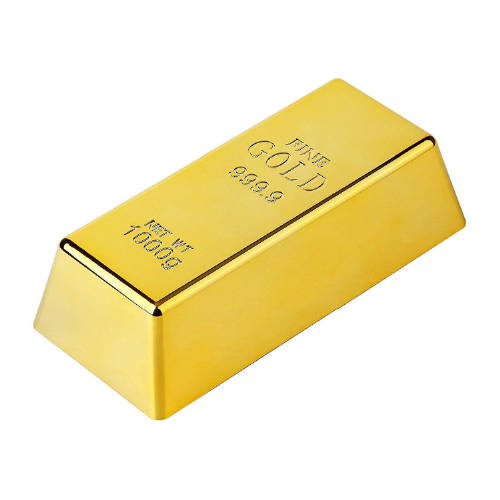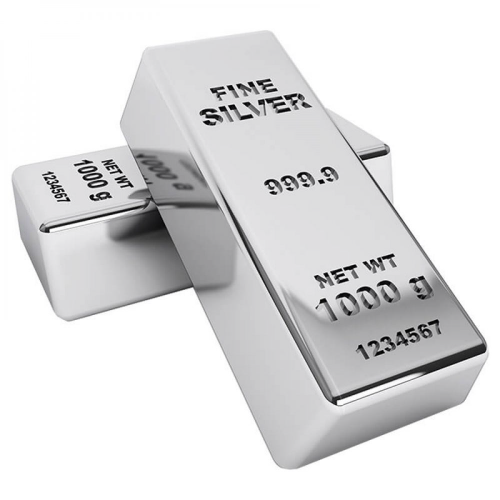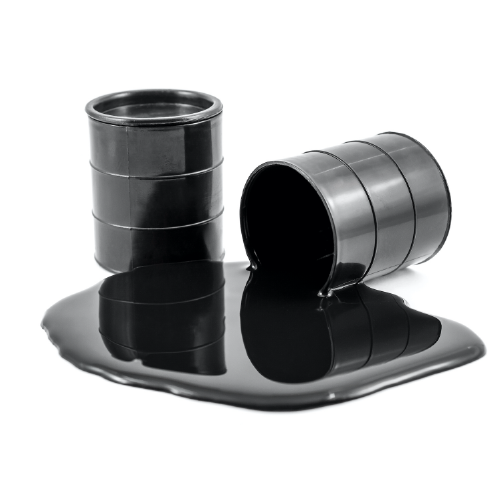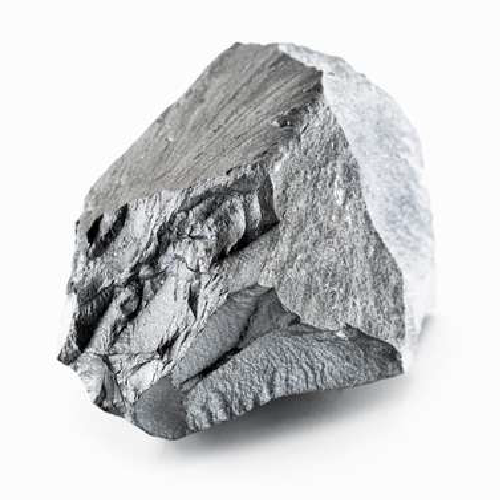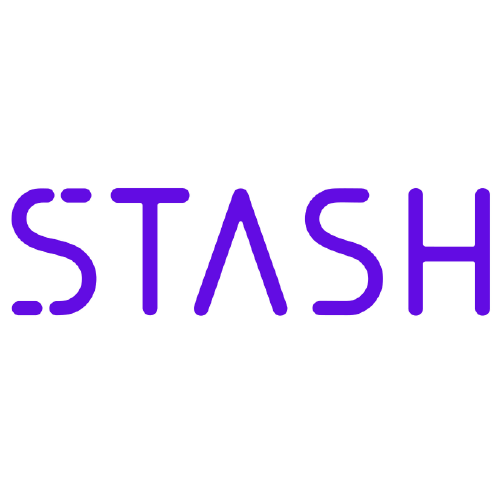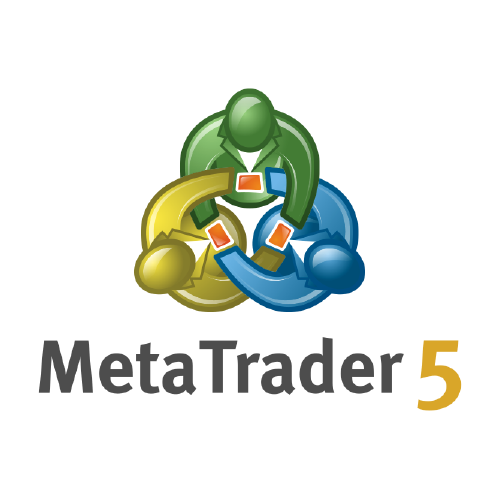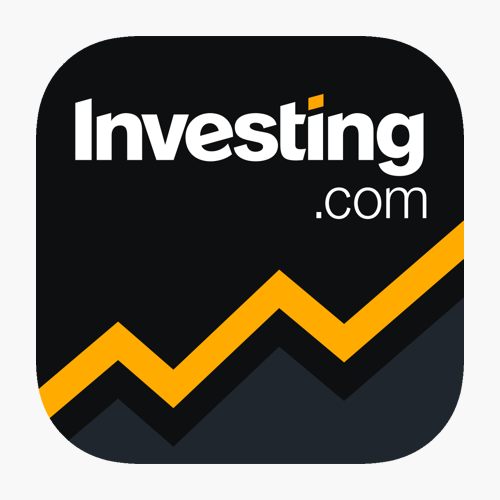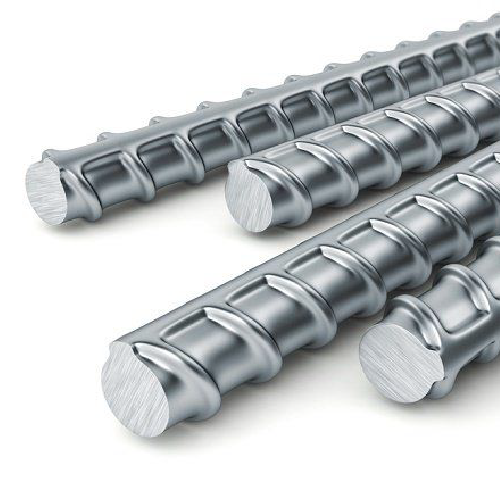
How to Buy Gold Online
- Is Gold a Good Investment?
- What Are the Different Ways That You Can Invest in Gold?
- Gold Bars
- Gold Coins
- Jewelry
- Exchange-Traded Funds (ETF)
- Gold Futures
- Gold Mining Shares
- Gold Certificates
- What Are the Advantages of Investing in Gold?
- What Are the Disadvantages of Investing in Gold?
- What Determines the Price of Gold?
- Where Do You Buy Gold?
- Final Thoughts
Historically, gold is a safe investment giving complete reassurance during tumultuous periods.
If you consider yourself a Ron Swanson and are looking to invest in gold, you must purchase your gold from a reputable investment company.
To help you understand more about buying gold online, we’re taking an in-depth look at why gold is such a good investment, as well as the advantages and disadvantages of buying gold bullion.
If you are intending on purchasing gold bullion by post, you should undertake due diligence on your chosen provider. And if you are buying gold as an investment, always speak to a financial advisor to get up-to-date advice.
Is Gold a Good Investment?
This is because the price of gold typically remains stable, regardless of any political strife or fluctuating markets.
For centuries, gold has retained its value, and its rarity means that prices will not fluctuate in the same way that property or pensions might.
The Best Trading Platforms
Let’s take a look at the best trading to earn more.
1. Liteforex
Best for: Learning from others
Liteforex is one of the most popular online reliable brokers over the world. Over the past 15 years, it has developed a strong reputation for beginners and experienced investors alike, has a minimum $100 deposit.
The Liteforex app aims to use easy for every clients. It is available on Google Play and the App Store and allows you to move seamlessly between devices.
It’s innovative features include:
- Pre-programmed one-click trading
- Copy Trader – Copy the trades of others in real-time
- Its own social networking platform
- Pre provided investment strategies which they call Copy Portfolios
The app boasts the ability to allow you to place online trades even if the trading platform is down.
The information is being presented without consideration of the investment objectives, risk tolerance, or financial circumstances of any specific investor and might not be suitable for all investors.
2. FXTM
The FXTM Platform itself is intuitive and easy to use, suitable for those just getting into trading and those more experienced alike.
It is designed to offer a full replication of an institutional trading environment including depth of market.
With advanced risk management and order functionality, this is a detailed platform for trading stocks.
The FXTM app offers a premium range of order types, with advanced technical analysis tools.
You can set up push and email notifications for the important things that you want to know in relation to your stock trading needs – such as price alerts and trade statistics.
Within the app, you can:
- Complete a range of order types
- Work with all your accounts in one app
- Understand detailed trade analysis
- Review detailed order tickets – base currency dollar value and pip distance
As a platform, there are comprehensive educational videos and explanations of symbols, so you can find optimized processing for expert advisors and indicators.
The information is being presented without consideration of the investment objectives, risk tolerance, or financial circumstances of any specific investor and might not be suitable for all investors.
3. FBS
Best for: CFDs
This app is designed for those wanting to trade outside of the US. It is considered one of the best for CFDs on shares and has a minimum $100 deposit.
There are low trading fees but considerable fees for inactive users.
The educational section is average, as are the research tools. However, the app is easy to use overall.
This app is recommended for those familiar with CFDs and who are actively trading. Reviews of the app show that users like the:
- Account-opening process
- Deposit and withdrawal features
- Customer service
- Actual trading platform
The information is being presented without consideration of the investment objectives, risk tolerance, or financial circumstances of any specific investor and might not be suitable for all investors.
What Are the Different Ways That You Can Invest in Gold?
We may all dream of diving into a pool of gold coins (à la Scrooge McDuck) but you may be surprised by the diversity that a gold investment portfolio can bring.
Let’s take a look at a few of the most common ways to invest in gold:
Gold Bars
Each bar typically weighs around 400 ounces and has a serial number attached to it for security purposes.
Many people are drawn to gold bars because they have a physical object to hold, reducing any reliance on third-party agencies being involved in the investment.
However, choosing to own gold bars will mean that investments can only be made or sold based on an entire bar. You can’t choose to sell only a small part of your gold investment, which is why many prefer the flexibility of gold coins.
Gold Coins
The nature of gold coins means that you purchase smaller sizes, giving you greater control over your investment.
Some collectors like to invest in rare coins that have a slightly higher value.
The most common gold coin is the South African Krugerrand. Other coins include the Sovereign and the Britannia (both still legal tender in the UK) as well as the Chinese Panda and the American Eagle.
However, like gold bars, the owner takes physical hold of the gold coins which can lead to security implications.
Jewelry
Financially speaking, however, it’s not the best way to invest your money in gold.
This is because there is such high demand for gold jewelry that your investment is unlikely to rise in value. There will always be jewelers able to make gold jewelry for other people, so it doesn’t have the exclusivity that gold bullion bars may have.
Exchange-Traded Funds (ETF)
These are relatively new (they launched in the US in 2004) so this method doesn’t have the history (or the glamour) of gold bullion. However, they have proved extremely popular.
This is because gold ETFs are shares that represent a specific amount of gold.
Like other stocks, you can buy or sell them with ease and, because you are in control of how many ETFs you purchase, they can be ideal for smaller investments.
It’s important to remember that with ETF investments, you will need to find a reputable gold company/stock broker to act on your behalf. They will purchase the funds for you and are likely to charge management fees and expenses.
Yet many investors are drawn to ETFs because they don’t necessarily need to be actively managed. A benefit of ETFs is that they can be easy and safe for investors with small budgets and little time.
Gold Futures
These contracts (which typically represent large amounts of gold) can be traded.
Due to the complexity around futures, they aren’t suitable for beginner investors. They require a lot of detailed understanding and knowledge to be successful.
Experienced investors are often drawn to gold futures because there are typically low commissions. However, the drawback is that prices may fluctuate, and the futures market is notoriously volatile.
Gold Mining Shares
As a result, some people choose to invest in gold mining shares.
These are options whereby you can buy shares from the companies that mine the gold. This, in turn, gives the mining companies the investment to continue mining.
Investors are drawn to gold mining shares because the value is far more sensitive to the current price of gold.
However, a gold mine’s reserve is never really known. There is no guarantee that they will be able to mine the gold, so the share price can fluctuate quickly.
Gold Certificates
These can be bought directly from your bank (if they physically store gold).
The advantage of a gold certificate over gold bullion or a gold coin is that you can have more flexibility over its value. You will technically own gold (and the bank will honor your investment), but if your gold certificate is for unallocated gold, you won’t physically own bullion with a specific serial number.
However, there is a risk that if something happens to your bank and they are liquidated, you could lose your investment.
You can also purchase a gold certificate for allocated bullion. This means that you do physically own a specific gold bar but it remains in the bank’s vault.
Many new investors are drawn to gold certificates because it’s one of the easiest ways to invest in gold. You can simply forget about it, safe in the knowledge that the gold is held securely at the bank.

What Are the Advantages of Investing in Gold?
Here are just a few of the key advantages:
- It’s inflation-proof – As an investment strategy, you can feel confident that your investment will remain stable, regardless of what is going on in the world. Gold tends to be inflation-proof – it typically holds its value extremely well and it’s rare for your investment to depreciate.
- You can be in control of your investment – Gold is unlike other investments in that you may have a physical product to retain. This means that you can be in complete control over your investment. You can decide on your security systems and processes (whether you choose a safety deposit box or a bank vault) and you may not need to pay expensive management fees or expenses to third-party agencies. If you physically hold gold (perhaps bullion bars or gold coins), you always have this at your disposal. For those worried by economic crises or political uncertainty, having physical control over your gold investment can be reassuring.
- There will always be a demand for gold investment – Due to the global popularity of gold, there will always be investors willing to buy your gold. This means that liquidity is high, making it easy to buy and sell at a time that suits you.
- It’s a good way of diversifying your portfolio – Investing in gold is not dependent on the stock market, so gold can be an option for those looking to have a diverse investment portfolio.
What Are the Disadvantages of Investing in Gold?
- You take responsibility for security – As much as this is an advantage, it’s also a disadvantage. You will need to find a way to safely store your physical gold bullion. You may need to invest heavily in secure deposit boxes or have a personal vault or bank vault where you can store the gold. Whilst this means that although you can choose the security system that you prefer, you have full responsibility if something goes wrong.
- Trading and storage costs can add up – Like many investments, if you choose to trade your physical gold, you can expect to pay trading costs. If you are storing your gold in a bank vault or a secure storage facility, you may expect to pay fees to extract your gold ready for trading.
- Short-term volatility – Although the price of gold increases over time, in the short-term it does fluctuate. If you are looking for fast investments that you can trade quickly, then gold may not be the right investment for you. Typically, gold increases in value by 9% over a year so if you’re looking for a quick investment portfolio to provide you with an income, you may be better off looking elsewhere.
What Determines the Price of Gold?
Sovereign governments and central banks are vital to the demand for gold as it is a core feature of most currencies.
The investment demand from those investing in ETFs can impact the price of gold as can mining capabilities. The scarcer physical gold is, the more it will soar in value.
The price of gold is also determined by the value of the US dollar. This is because the price is always listed in dollars. A weak dollar will mean that investors can purchase more gold which drives the price higher.
Where Do You Buy Gold?
In some places, gold vending machines have appeared, making it quicker and easier than ever before to purchase gold. But these are gimmicky, and if you are a serious investor, they should be avoided.
Globally, the cheapest place in the world to purchase gold is Hong Kong. Within the central district, it’s not uncommon to find global banks selling gold at low prices.
However, if flying to Hong Kong is a bit beyond your budget, it’s worth looking at companies that sell gold bullion by post.
There are reputable companies who will deliver your gold bullion or your gold coins directly to your house, through insured couriers. Alternatively, you should speak to your bank who may be able to advise whether they sell gold directly, or whether they sell gold certificates.
Another option is to look for a specific bullion dealer. These are professional gold experts. They deal in gold bullion and will be able to offer you advice about your gold purchase. However, it should be noted that bullion dealers may charge transaction fees as well as storage fees if they are responsible for securely storing your gold.
A final option is to speak to a stockbroker.
They will be able to advise you about gold ETFs, gold mining shares or gold futures.
Like many investments, they will likely charge fees for buying or selling your gold, as well as for proactively managing your investment on your behalf.
Final Thoughts
A positive about investing in gold is that the multitude of investment scenarios make it far more accessible for first-time investors. The low starting point with gold coins means that they are not just for serious investors, it can also be a hobby.
We recommend that before you invest in gold, you pay close attention to the changing prices. The price of gold can alter quickly so you need to feel confident that you are buying at the right price.
If you are planning on purchasing physical gold, you need to factor in how you plan to store the bullion and whether there are any storage fees in place.
When it comes to investments, there are no guarantees. Always take advice from a qualified financial advisor before making any final decisions.
Myanfx-edu does not provide tax, investment or financial services and advice. The information is being presented without consideration of the investment objectives, risk tolerance, or financial circumstances of any specific investor and might not be suitable for all investors.
Financial Trading is not suitable for all investors & involved Risky. If you through with this link and trade we may earn some commission.

What Is Equity Trading?
In this article, we will look at what an equity trader does, the skills and qualifications they need, and the kind of salaries and career progression they can expect.
What Do Equity Traders Do?
They may carry out their transactions online, or they might work on the floor of a stock exchange.
An equity trader will monitor market trends, evaluate how individual equities are performing and calculate financial risk to decide when to buy and sell, or how to advise investors. They also spend time contacting potential new clients or forming professional relationships.
Equity trading desks will often be split into different trading roles; cash, derivatives and exotics.
Cash
Derivatives
An equity derivative is a financial instrument that derives its value from the price movement of an underlying asset or assets.
Equity traders use derivatives to manage risk on long or short positions and to speculate on fluctuations in the value of the underlying asset.
Equity traders use derivatives to manage risk on long or short positions and to speculate on fluctuations in the value of the underlying asset.
Equity traders in this area must have good quantitative skills as well as market instincts, and will need to make calculations quickly.
Exotics
Equity traders working in exotics will create the structure and value them for clients, and then manage them on the client’s behalf.
The pricing of the products is key, so keen analytical and quantitative skills are crucial for this role.
What Are the Key Skills Needed to Become an Equity Trader?
They must be mathematically-minded, with strong analytical skills.
They also need to be able to think strategically and make decisions. And they should have an appetite for risk-taking but also understand how and when to manage risk.
In addition to this, equity traders need strong communication skills, as much of their work is likely to involve collaborating and liaising with colleagues and building relationships with clients.
IT skills also play an increasingly important role in an equity trader’s job.
As an equity trader, you will be working with portfolio accounting programs, trading platforms and other software, so you must be confident with this kind of technology.
As mentioned previously, much of trading is now automated, particularly on cash equities desks where the product is simpler and more liquid.
Goldman Sachs has reportedly automated 99% of its equity trading jobs since 2000, reducing its cash equities trading desk from a team of 600 to just two.
While more complex equity products, such as derivatives and exotics, are less likely to be automated, there is no doubt that technology will play an increasingly important part in this industry.
In light of this, programming knowledge would be a useful skill for any equity trader looking to future-proof their job and ensure a wide range of career options.
It could also be helpful to learn about data science and data mining (the process by which raw data is turned into useful information).
What Qualifications Are Needed to Become an Equity Trader?
An MBA (Master of Business Administration) may also put you at an advantage.
Many employers will also expect their equity traders to be registered with the Financial Industry Regulatory Authority (FINRA) and to have passed one or more of its exams. For entry-level roles, the candidate may work towards this on the job.
Typically, an equity trader would take the Series 7 exam, which covers areas such as sales of corporate securities, investment company securities and variable annuities.
A FINRA member firm or self-regulatory organization (SRO) must sponsor you to sit this exam and the sponsoring firm will usually pay the examination fees.
You may also be required to take FINRA’s Series 63 exam, which assesses your understanding of industry regulations and how to protect clients’ interests, and the Series 57 exam, which measures the knowledge and abilities needed to trade securities.
Some employers will also favor applicants who hold the Chartered Financial Analyst (CFA) designation. This is a postgraduate certification for investment and financial professionals.
Equity trading is a highly competitive field so, aside from gaining official qualifications, you should look for ways to set yourself apart from the competition.
This will also be useful if you feel your educational qualifications are lacking for some reason.
You could gain experience by applying for internships and work placements, either through your school or college or via the relevant firm directly.
You could also consider joining a professional network, such as your local Security Traders Association (STA), which will offer you networking opportunities and the chance to meet equity traders and find out more about the role – and possibly secure work experience or job interviews.
Developing in-depth knowledge of a specific product will also help to set you apart, especially for entry-level roles.
For instance, you could study one particular exotic equity derivative, such as the compound option or the lookback option. This will give you something to discuss at interview and is likely to impress a potential employer.
And, as covered in the previous section, programming and data science qualifications and experience will also help you to stand out from the crowd and open up more opportunities within the field of equity trading.
What Is It Like Working as an Equity Trader?
An equity trader would usually get into the office early, at around 6 or 6:30 a.m., and spend the first few hours of the day getting themselves up to date with the latest market news and how this may impact the stocks they are trading.
They will also catch up with colleagues to exchange news and information before the market opens at 9:30 a.m. Eastern time.
Once the market opens, an equity trader will spend much of the day on the phone, updating clients and making trades.
A trader will be working multiple orders at once for several different clients so they can’t afford to miss anything and will constantly be monitoring news and events.
The US stock market doesn’t pause for lunch so neither can the trader – sometimes there isn’t even time to go to the bathroom.
Throughout the day they will also be in ongoing dialogue with other traders, sharing information that may affect their trades.
The market closes at 4:30 p.m. but equity traders may need to work later in the office, and will regularly spend the evening entertaining clients at a restaurant, bar or sports game.
So, working as an equity trader can be exhausting, if exhilarating.
Salary and Career Progression
A typical career would progress roughly as follows:
- Intern
- Analyst
- Associate
- Vice president
- Director
- Managing director
Analysts start in a similar role to interns, spending much of their time assisting more senior traders. Over time, and depending on performance, they will gradually be given more direct client and trading responsibility.
As a trader moves up through the positions of associate, vice president and director, their day-to-day role may stay largely the same. However, they will manage larger trades and be granted more freedom in how they manage their positions.
They will also gain larger risk limits, enabling them to make more aggressive trades, and therefore potentially bigger wins. They may also be supported by an analyst or associate.
The move from analyst to associate is fairly standard and straightforward. However, from that point on, those who perform well can see themselves promoted quickly, possibly even skipping over some positions, while under-performers may find themselves holding onto the associate role for some time.
In 2018, the US Bureau of Labor Statistics reported a median salary of $64,120 for professionals in the category of Securities, Commodities and Financial Services Sales Agents, which includes equity traders.
Earnings for equity traders can vary greatly because they depend to a great extent on the performance of individual traders. However, an analyst can expect to earn somewhere in the region of $75k as their base salary.
This rises to around $100k base salary for an associate, $200k for a vice president, $250k for a director and around $350k for a managing director.
Bonuses will boost these figures significantly; however, as you move up the career ladder, you will receive less of your bonus in cash and more in stock or deferred compensation (such as in a pension or retirement plan).
Exit Strategy
Some may choose to move into hedge funds, asset management or proprietary trading (also known as prop trading).
Traders could also make the transition into a role in risk management or become a regulatory specialist.
Those deciding to leave equity trading may decide to do something completely different – they could put their IT knowledge to use by joining a tech company or even launch their own startup.
Final Thoughts
Equity trading is about analyzing and trading the stock of individual companies, so it is more suited to those with an interest in micro, rather than macro, analysis.
As the industry becomes increasingly automated it is worth developing your programming and IT skills so that you also have the option to work with the technology involved in automating trades.
Equity trading is fast-paced and competitive, so you will need to be hard-working and ambitious. But you will be rewarded with a healthy pay packet and the opportunity to rise quickly through the ranks.
Of course, this list is not exhaustive and is not intended to inform any final decision made on your part. Instead, use it as a reference tool to guide your research and find a broker that best suits your trading style and personal circumstances.
Myanfx-edu does not provide tax, investment or financial services and advice. The information is being presented without consideration of the investment objectives, risk tolerance, or financial circumstances of any specific investor and might not be suitable for all investors.
Financial Trading is not suitable for all investors & involved Risky. If you through with this link and trade we may earn some commission.
Want to Trade Online?
Easy Trading Platform
Copy Experienced Traders
Trade from Your Pocket
Trade with Liteforex
- Best Mobile App
- Free Trading Courses
- Low Fees
- Fast Execution
- 24/7 Customer Support
CFD Trading on financial markets carries risks. Before deciding to trade, you need to ensure that you understand the risks involved.





